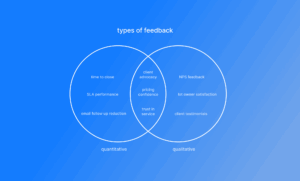NPS in strata is a topic that’s been coming up more and more in our conversations with clients. With developments becoming increasingly complex, staffing costs on the rise, and the current economic landscape putting pressure on margins, many strata management companies are exploring ways to generate additional revenue streams.
But here’s the thing, while diversifying income is important, your most powerful pricing strategy doesn’t have to just start with adding new services. It starts with something you should already be doing, delivering an exceptional client experience.
At resvu, we’re passionate about helping managers create that experience every day. Because in this industry, client satisfaction is a lever that can justify your fees, win committee trust, and ultimately turn clients into your greatest advocates – which is amazing for business! (we’ll talk about that below)
For ease, we’ve split this post into part 1 and part 2, because we have *a lot* of thoughts on the topic.
Part 1: Justifying your pricing strategy through a positive client experience
Lately, we have been talking a lot about the relationship between data, client experience, and pricing power in strata management.
In our recent webinar in partnership with SCA NSW (thanks for having us, Natalie Fitzgerald!! 💙), Daniel from our integration partner Stratamax raised a great point about the power of promoters – the clients who do not just like your service, but actively advocate for it.
Having promoters is good for business. They are less concerned about pricing and will speak on your behalf. Advocacy from a happy client will always carry more weight than anything you can say as a brand.
Just read this case study from our happy client Stratacare.
But advocacy does not just happen. You need to prove your value in ways that are measurable and meaningful, over and over again. Embedding feedback into your company culture and seeing it as a strategic tool rather than criticism is mindset shift step one.
Strong advocacy can directly support your pricing strategy. When committees are having conversations about your brand, and those conversations are positive, backed by real experiences and results, price becomes a secondary consideration. Advocacy shifts the conversation from “is this worth it?” to “we would be crazy to switch.”
It all comes down to a balance of these two points:

Quantitative data: Metrics like time-to-close, service level agreement performance, and email enquiry reduction give you hard proof that you are delivering.
Qualitative insights: NPS feedback, committee testimonials, and lot owner satisfaction bring those numbers to life and explain why they matter.
Balancing both puts you in a stronger position to:
-
Justify your pricing with confidence
-
Win committee trust with irrefutable proof
-
Turn satisfied clients into long-term advocates
In strata, committees ultimately choose who manages their building. If you can show, with numbers and with voices, that you deliver exceptional service, you are giving them every reason to choose you.
Part 2: How NPS in strata supports your pricing strategy
One of the most effective ways to capture both the data and the sentiment behind client experience is through a Net Promoter Score (NPS) program.
NPS in strata management is more than a yardstick to see how people are feeling about you, it identifies your promoters – the advocates who can become your biggest asset in pricing discussions. These clients are more likely to recommend your services, renew their agreements, and view your pricing as an investment in quality rather than just another cost.
As Daniel from Stratamax highlighted in the webinar, real client feedback is ten times more powerful than any marketing or advertising you can produce. Pairing qualitative NPS feedback with operational metrics like response times, resolution rates, and follow-up frequency creates a complete, evidence-backed story of the value you deliver.
Our founder, Tom, adds that the purpose of collecting feedback is not only to improve service but to make your value visible to clients. Proactively sharing NPS results and other performance data with committees builds trust, strengthens your reputation, and helps you confidently defend your pricing 🤺
If you are delivering on responsiveness, follow-up, and transparency, committees are far less likely to push back on fees. Instead, they see your service as something worth investing in for the long-term health and harmony of their building.
Final thoughts: Proving your value is not a one-off exercise. With NPS in strata, you gain a consistent way to track advocacy, showcase measurable outcomes, and demonstrate why your service is worth the investment. When you do this consistently, pricing becomes less about negotiation and more about mutual agreement on value.

